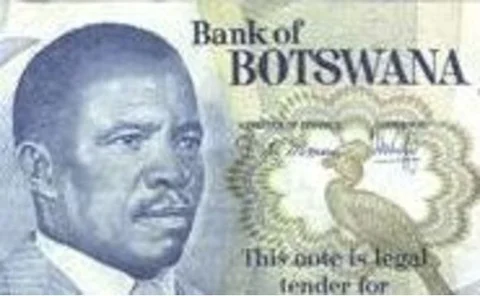Credit conditions
Seacen Centre’s Genberg calls for research into effects of macro-prudential tools
Hans Genberg warns ‘we do not have much experience with the consequences’ of macro-prudential policies with respect to risk distribution and cross-border effects
Bank of Canada adds negative rates to toolkit
Central bank publishes new framework for monetary policy when interest rates are approaching zero, suggesting the overnight rate could be cut as low as -0.5%
Central Bank of Armenia says currency turbulence has raised credit risks
Financial stability report says economy has been affected by sharp depreciation of the dram, worsening credit risk as many loans are denominated in US dollars
Banks may need major overhaul to handle new disclosures, FSB task force says
Many banks will need to make ‘substantial changes’ to systems and processes to cope with new and more complex standards on accounting for expected credit losses, report finds
Nigeria cuts rates to encourage growth in ‘bold’ decision
The central bank lowers the policy rate by 200bps as part of a package of measures aimed at supporting growth and easing credit conditions
Barbados central bank to manage ‘enhanced credit guarantee scheme’
Under the forthcoming guarantee fund there will be $70 million available; it will be used to guarantee as much as 80% of specific loans to SMEs
RBA deputy disappointed by data inaccuracies
Philip Lowe discusses two problems that have emerged in reporting of loans in housing market, stressing value of high-quality data
Hungarian central bank mulls lower capital requirements for SME-friendly banks
Central bank looks to incentivise lending to small businesses; risk-absorbing swaps and 'preferential' deposit facility could be supplemented by lower requirements
Bank of Israel unveils plans for better credit data gathering
Registry designed to improve both credit provision and financial stability; deputy governor says central bank has learnt from others while tackling what has been a major project
Countries under credit stress should ‘front-load’ fiscal consolidation, says ECB paper
Front-loading will bring confidence effects, the working paper suggests
Ireland’s Gerlach points to indirect impact of macro-prudential tools
Deputy governor says evidence suggests LTV and LTI tools are having the strongest effect via indirect channels, rather than their direct impact on credit, although the tools are still new
BoE paper explores money and credit at sectoral level
Working paper models sectors separately before ‘knitting’ them together; authors use framework to examine financial shock and use of quantitative easing to tackle it
Bundesbank paper explores why banks may lend too much
A limited number of banks may engage in excessive lending, and those that do are more likely to rely upon capital support, says Bundesbank paper
Credit growth has had significant impact on EM growth, IMF paper says
IMF paper explores relationship between the level and composition of credit growth and real GDP growth across 31 emerging market economies
Botswana research weighs impact of various instruments on credit
While interest rates may be more effective at influencing credit than reserve requirements, more ‘direct’ macro-prudential measures could be even better, Botswana article finds
Difficult liquidity conditions are here to stay, say Asia conference panellists
Gapping moves in spot markets and higher prices for clients in FX derivatives are here to stay, as banks pull back from market-making in non-core currencies, panellists warn
BIS paper studies impact of Swiss CCB on quality of credit
Working paper finds activation of countercyclical capital buffer affected the composition of mortgage lenders in two key ways
Israel’s bank supervisor looks to split credit card companies from banks
Hedva Ber has revealed plans to boost competition in financial sector, including forcing two of the largest Israeli banks to sell their credit card companies and creating a credit database
BoJ deputy urges thorough analysis of risk weight revisions
Hiroshi Nakaso calls for a cost-benefit analysis of proposed revisions to ‘standardised approach for credit risk’ that some market participants fear could restrict financing for development
Indian central bank targets stronger rate transmission
Reserve Bank of India sees improvements in transmission of policy to money markets, but looks to strengthen credit channel as it transitions to inflation targeting framework
IMF paper explores capital inflows and credit growth
Working paper finds an increase in capital inflows can fuel credit growth, but it depends on their composition; no ‘significant’ connection with foreign direct investment
Equity price growth rate ‘leading indicator’ of bank loans, French paper argues
Comparing two models of domestic credit dynamics to recent French data shows the importance of equity price growth rates, according to a Banque de France working paper
IMF paper finds standard risk metrics perform poorly with low financial depth
Authors find ‘excess credit’ is a better early warning indicator for financial instability than credit-to-GDP where countries have limited financial depth
Bundesbank research tracks changing financial cycle
Discussion paper seeks to establish the ‘empirical regularities’ of the financial cycle using an econometric model, finding the cycle has grown longer and more severe over time





















